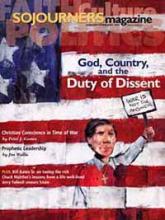William Gates Sr.—whose son is Microsoft founder Bill Gates—joins with co-author Chuck Collins to argue that the wealthiest among us have an obligation to pay their fair share.
In the last several years, Congress has debated whether to eliminate the federal estate tax—or "death tax"—our nation's only levy on accumulated wealth. The paltry debate over elimination of the tax has not grappled adequately with the negative consequences of repealing the estate tax.
One hundred years ago, during the first Gilded Age, we had a rigorous debate about the dangers of concentrated wealth in a democracy. The debate over the estate tax goes to the heart of the question of "what kind of country do we want to become" and ethical questions about society's claim upon the accumulated fortunes of the wealthy.
Ten years ago, a number of wealthy families—including the heirs to the Mars and Gallo fortunes—began bankrolling a campaign for wholesale repeal of the tax. Instead of revealing the true beneficiaries of repeal—households in the top 1 percent of wealth holders—they put forward a media campaign representing farmers and small-business owners as injured parties to the tax. Much of this mythmaking, however, has obscured the dangerous impact of eliminating the tax.
Proponents of repeal argue that the estate tax is un-American, that it punishes success and discourages parents from passing on wealth and businesses to their children. They successfully included elimination of the estate tax in President Bush's Tax Relief Act of 2001, through which the estate tax would gradually be phased out and then repealed for one year in 2010. Now repeal advocates are pressing to permanently eliminate the estate tax.
Read the Full Article

